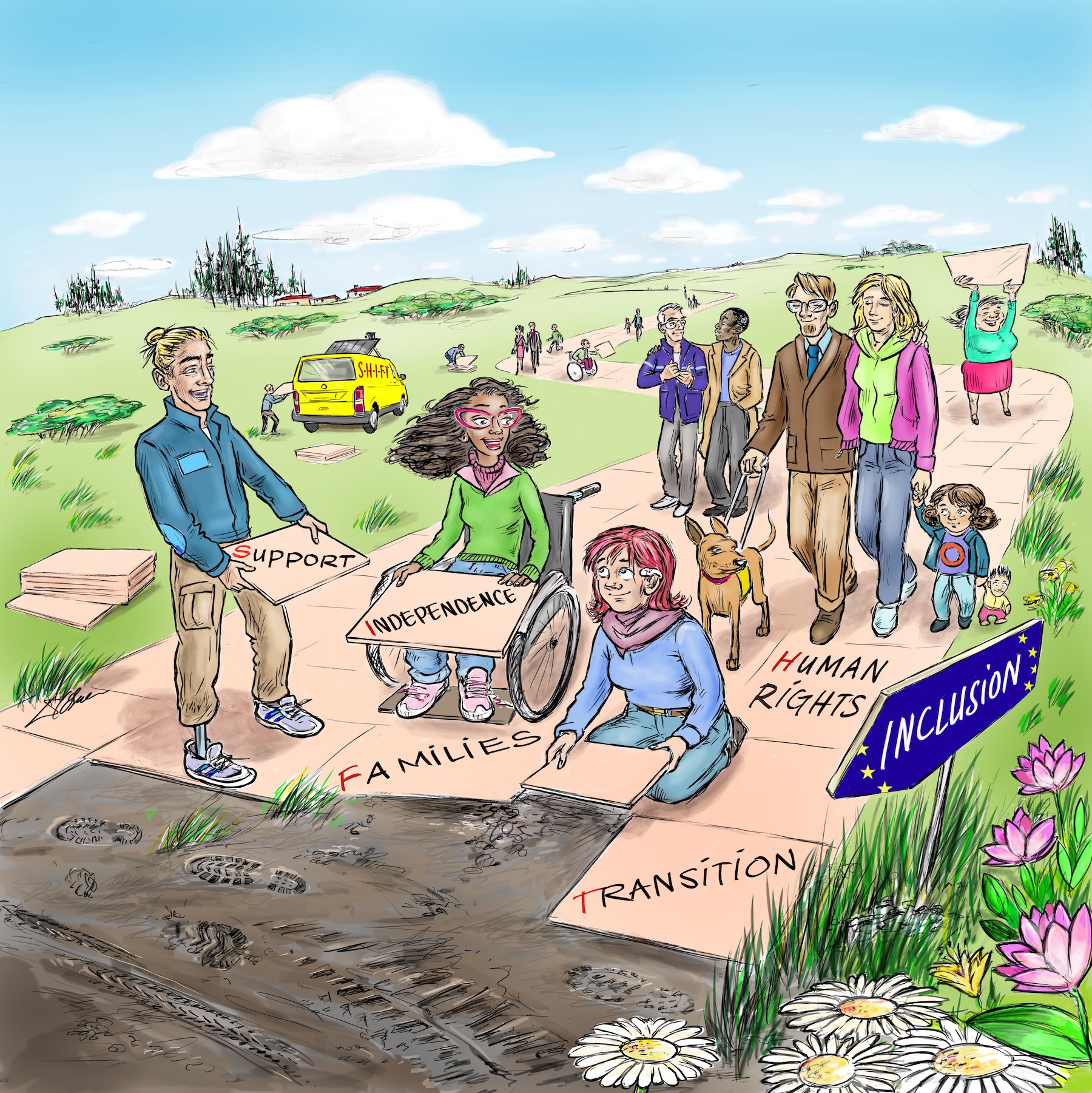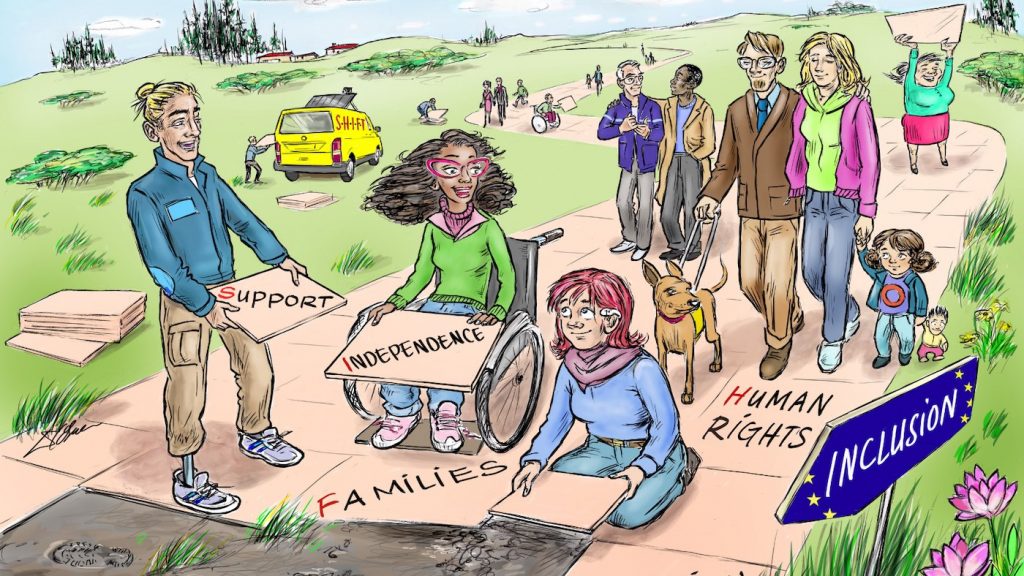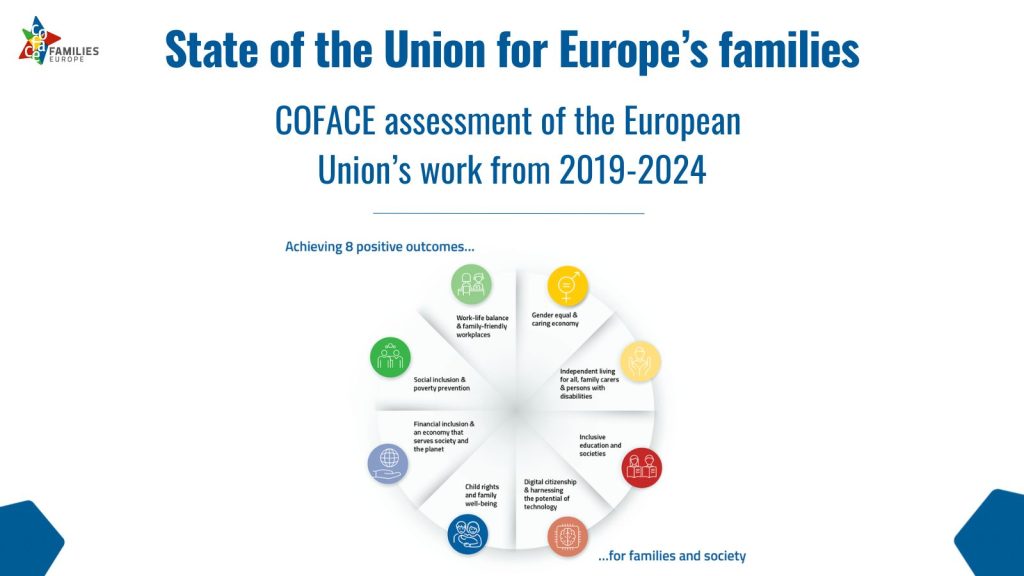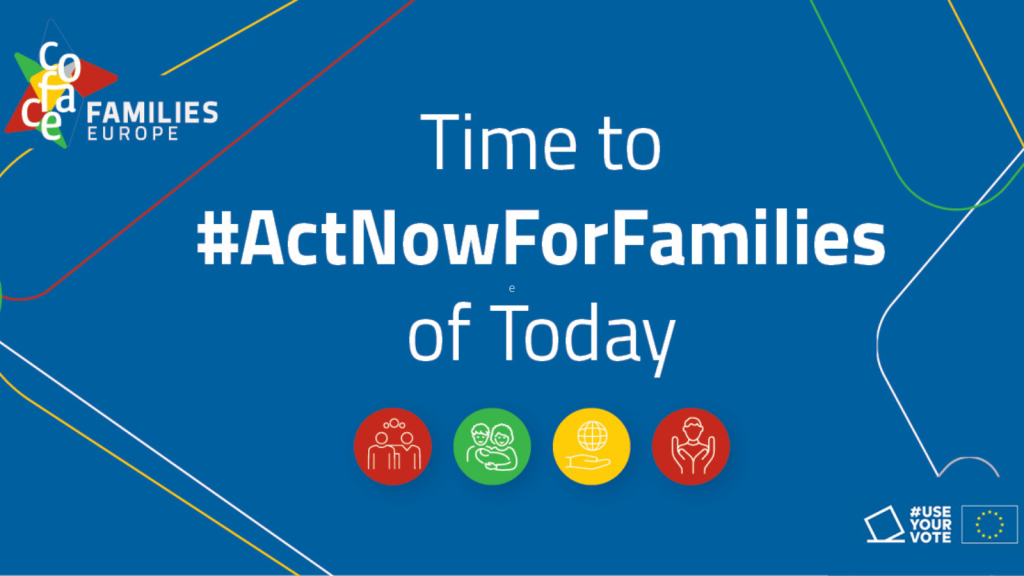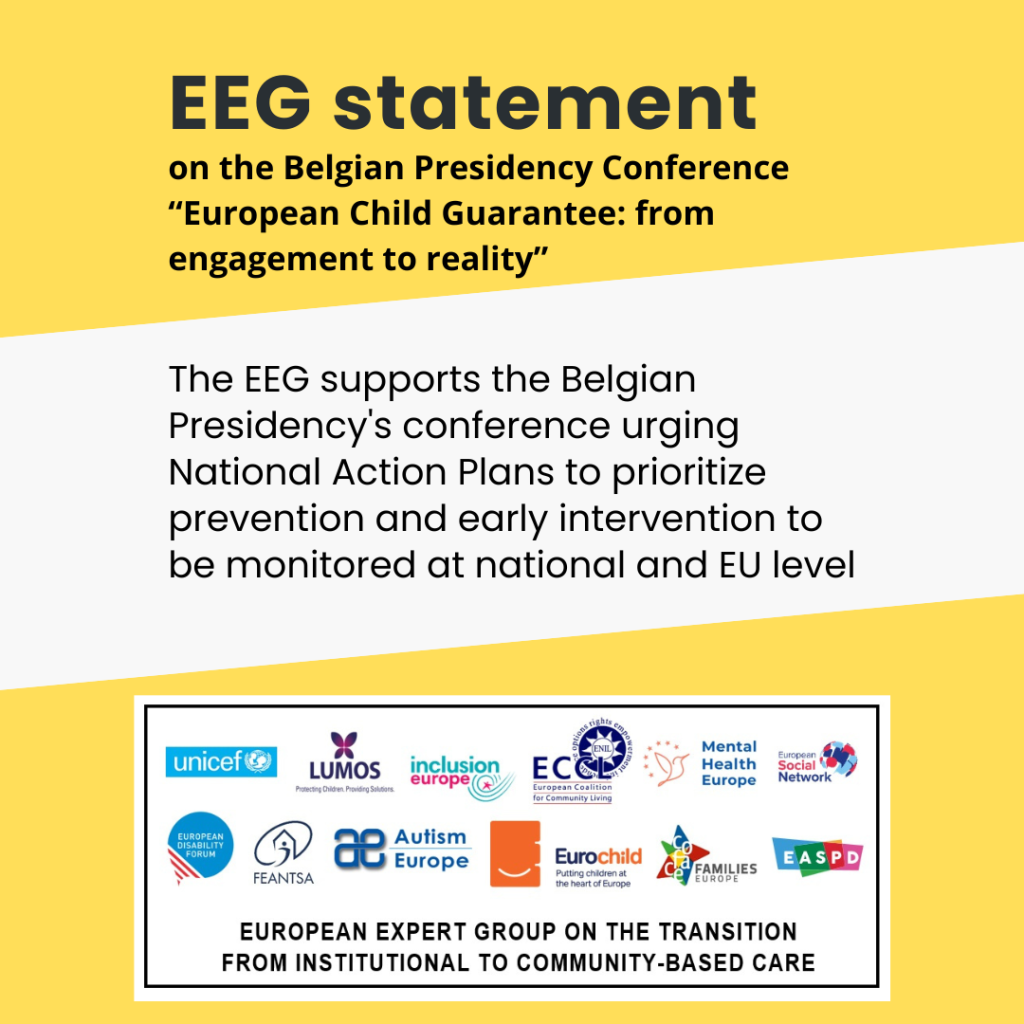COFACE Families Europe is one the founders of the European Expert Group on the Transition from institutional to community-based care (EEG) and an active member of this group for ten years now. The EEG and its members are actively lobbying to avoid that EU funding goes to long-stay, residential, segregating facilities, which are not respecting the human rights of the people living in there. This goes hand-in-hand with the implementation of deinstitutionalisation reforms in European countries. Families are not only supporting this, but they also need to be supported as part of the transition to community-based settings for their family members.
With S.H.I.F.T., we decided to focus on persons with disabilities and show that deinstitutionalisation is not only about closing down large-scale residential institutions, but refers to the whole process of putting inclusion and respect of human rights at the centre of all policy actions, from birth to old age. This means mainstreaming disability and building societies where persons with disabilities are valued and can reach their full potential, can access the same services and facilities as everyone else including education, transports, housing and culture, while they receive support, according to their needs.
The S.H.I.F.T. guide wants to inspire this process, by giving indications on the key tools and actions that can be undertaken to develop a range of person-centred support services in the community, to foster the respect of human rights of persons with disabilities, to make the mainstream sector inclusive and accessible, to empower and adequately support families of persons with disabilities, and to drive a cultural shift to value differences and to embrace inclusion as an overarching value in society.
New report shedding light on the S.H.I.F.T. towards meaningful inclusion in Europe
New report shedding light on the S.H.I.F.T. towards meaningful inclusion in Europe.
- A global network centralising information on available assistive technology products.
- Accessible technology with built‑in features that work the way you do.
- Boosting representation of persons with disabilities in advertising.
- Creating inclusive and diverse toys which represent children with disabilities.
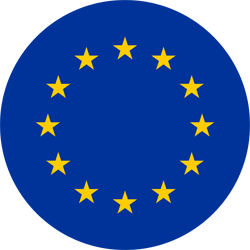
- Training manuals on sexual and reproductive health and rights for young people with learning disabilities. Europe
- European Union Strategy for the rights of persons with disabilities 2021-2030.
A guide to shift towards meaningful inclusion of persons with disabilities and their families
According to the Academic Network of European Disability Experts, institutional care continues to consume disproportionate levels of public expenditure, far outweighing that invested in community-based alternatives. There is a trend, albeit slow in many cases, away from such large institutional care arrangements in many countries towards community-based support solutions.
Deinstitutionalisation is about implementing Article 19 of the UN Convention on the Rights of Persons with disabilities ensuring that individuals with disabilities have all necessary means to exercise choice and control and make all decisions concerning their lives
In order to boost this process, the COFACE Disability platform for the rights of persons with disabilities and their families produced the S.H.I.F.T. guide, which proposes 5 objectives, 15 tools, and 45 actions in the areas of Support, Human rights, Independence, Families and society Transition to achieve meaningful inclusion of persons with disabilities and their families.
The S.H.I.F.T. guide wants to inspire this process, by giving indications on the key tools and actions that can be undertaken to develop a range of person-centred support services in the community, to foster the respect of human rights of persons with disabilities, to make the mainstream sector inclusive and accessible, to empower and adequately support families of persons with disabilities, and to drive a cultural shift to value differences and to embrace inclusion as an overarching value in society.
COFACE actions and tools are built around the objectives of developing a range of person-centred support services in the community, having efficient ways to exercise and monitor the respect of human rights, making the mainstream sector inclusive and accessible, empowering families of persons with disabilities, and driving a cultural shift to embrace inclusion as an overarching value in society.
The S.H.I.F.T. guide is available below in different languages (PDFs).
Other language versions will follow soon.
S.H.I.F.T. Guide
EN
S.H.I.F.T. Guide
FR
S.H.I.F.T. Guide
PT
S.H.I.F.T. Guide
ES
S.H.I.F.T. Guide
IT
Easy To Read Version of our S.H.I.F.T. GUIDE
S.H.I.F.T. Guide in English
S.H.I.F.T. Guide in French


